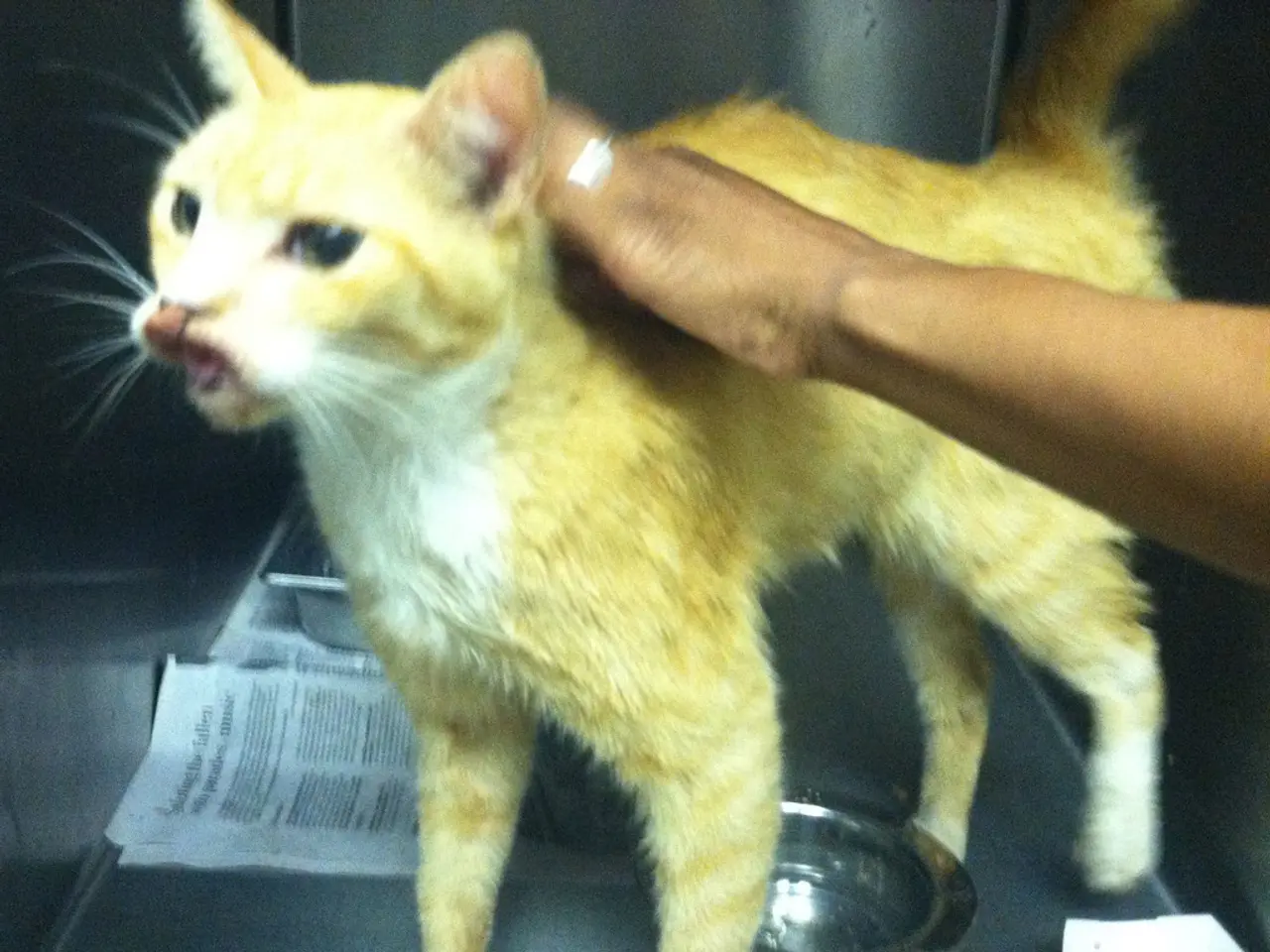Two house-bound cats in Michigan test positive for avian flu, suspected to have been contracted from their owners
In a concerning development, two indoor cats from separate households in Michigan have died from H5N1 bird flu, according to reports. The first cat, a 6-month-old male, showed symptoms of progressive neurologic deterioration, facial swelling, and stopped eating before its death within 24 hours. Another cat from the same household developed potential bird flu symptoms but recovered without specific treatment.
The second cat, a 5-year-old female, showed symptoms of lethargy, disorientation, and a lack of appetite.
A teenager in the household where the first cat resided also fell ill about six days after the cat did, with symptoms including cough, sore throat, headache, and muscle aches. However, the teen tested negative for flu and instead came back positive on a test that looks for other common viruses, such as common-cold viruses.
The virus samples from the cats matched the viruses circulating in local cattle, raising concerns about potential transmission from humans to cats. The worker who owned the first cat worked on a dairy farm, although not directly with the animals. The worker had eye irritation two days before the cat got sick, which is a common symptom in recent H5N1 infections in humans.
Nasal swabs from the cat were positive for H5N1, and swabs from the cat's brain and nose came back positive for H5N1 after euthanization. The worker did not wear protective equipment when handling raw milk and frequently experienced splash exposures to the face, eyes, and clothing while working.
The three other members of the worker's household tested negative for influenza A. The dairy worker declined testing for bird flu due to fear of losing employment.
Experts have expressed concern that the data related to these cases may have been withheld for political purposes, as the information was briefly included in a report that focused on air quality and the Los Angeles County wildfires before being swiftly removed.
To prevent transmission from humans to indoor cats, experts recommend avoiding close contact with cats if the human has suspected or confirmed H5N1 infection. Wearing well-fitted respirators or medical masks by infected persons to reduce respiratory droplet spread, practicing rigorous hand hygiene, keeping cats indoors away from potentially contaminated environments, limiting their interaction with other animals, especially poultry or wild birds, and cleaning and disinfecting surfaces frequently touched by both humans and cats are all important protective measures.
The risk of human-to-cat transmission is considered low but possible, warranting precautionary steps as outlined.
Bird flu had been reported on some Michigan dairy farms by the time the first cat got sick. No specimens from the second cat were tested for H5N1, but the timing of illness may point to possible transmission.
In a related development, a second indoor cat in a different Michigan household has been diagnosed with bird flu. The data table related to a study by the Centers for Disease Control and Prevention's Morbidity and Mortality Weekly Report (MMWR) was inadvertently posted online and swiftly removed.
Protective measures for humans include getting vaccinated, avoiding raw or undercooked poultry, washing hands frequently, wearing masks in crowded areas, and avoiding contact with sick birds or surfaces contaminated by bird droppings or secretions.
As the situation develops, it is crucial for individuals to stay informed and follow public health guidelines to protect themselves and their pets.
Mental health issues among individuals living with cats that have been infected with H5N1 bird flu could potentially arise due to anxiety and fear of contracting the virus. It is important for these individuals to seek help from mental health professionals to manage their stress and maintain their overall health and wellness.
In light of these recent cases, medical-conditions related to bird flu in cats, and the potential risk of human-to-cat transmission, it is essential for owners to prioritize health-and-wellness practices such as regular vet check-ups and vaccinations for their pets to ensure their well-being.




